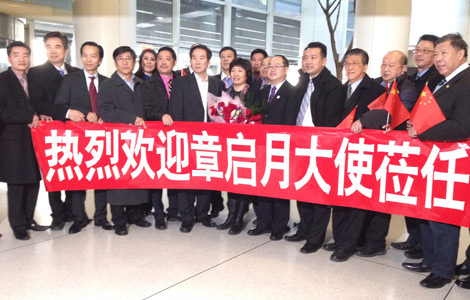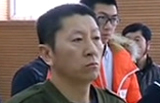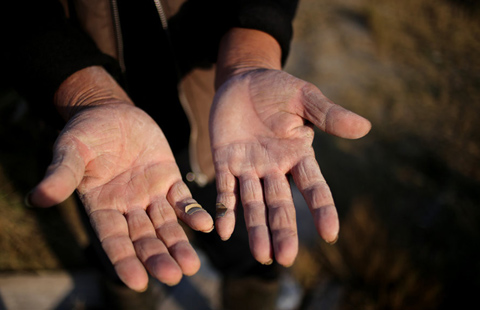Deals planned to recover illegal assets from abroad
Updated: 2014-12-29 13:24
By Zhang Yan in Beijing(China Daily USA)
|
||||||||
China negotiating with United States, Australia, Canada to share intelligence
China will strengthen financial intelligence exchanges with the United States and Australia to track corrupt Chinese officials' illegal assets and fight money laundering, a senior official from the Ministry of Justice said.
The People's Bank of China is in discussions with the US Financial Crimes Enforcement Network, a bureau under the US Treasury Department that monitors financial transactions to fight crime, said Zhang Xiaoming, deputy director-general of the ministry's legal assistance and foreign affairs department. Preparations are being made for a bilateral agreement to target assets that Chinese suspects hold overseas, Zhang said in an exclusive interview.
The central bank will also sign a similar agreement with the Australian Financial Intelligence Unit to monitor the suspicious flow of such assets, he said.
"After the agreements are made, China will share intelligence with the US and Australia, which will also offer information to their enforcement agencies to conduct further investigations," Zhang said.
"Once law enforcement officers in the US and Australia identify illegal funds, they will immediately initiate judicial procedures to freeze and confiscate those criminal proceeds in their countries."
More than half the known corrupt Chinese officials have transferred their illegal assets offshore and escaped to the US, Canada and Australia to avoid punishment, the Ministry of Public Security said.
Between 1990 and 2011, more than 18,000 corrupt officials fled overseas, transferring ill-gotten funds of up to 800 billion yuan ($128.5 billion), figures from the Chinese Academy of Social Sciences show.
In July, the Ministry of Public Security launched a special "Fox Hunt 2014" crackdown on economic fugitives who had fled overseas.
As of Dec 4, Chinese police had brought back 428 fugitives for alleged economic crimes from 60 countries and regions, but had seized only part of the illegal funds they had transferred abroad.
"Due to legal obstacles and different legal procedures, we face practical challenges in seizing and bringing back more assets," said Liu Dong, deputy director of the ministry's economic crimes investigation department.
Zhang of the Ministry of Justice said that in many cases, authorities are unable to provide judicial agencies in the US or Australia with all the necessary legal documents, including asset restraining orders that must be issued by Chinese courts to request assistance to freeze and seize the illegal funds.
"Although the US Federal Bureau of Investigation or Australian police have traced the assets and collected enough evidence to identify them as ill-gotten gains, they are unable to take immediate measures to freeze and confiscate them due to the lack of asset restraining orders from the Chinese courts."
Under Chinese criminal law, courts are unlikely to issue sentences on suspects and their illegal gains if they do not attend court hearings.
Since November 2012, when the new leadership took office, President Xi Jinping has conducted a sweeping campaign to fight corruption and required authorities to strengthen judicial cooperation with other countries to hunt down fugitives and recover their illegally obtained assets.
China and Canada are also set to ink an agreement to share recovered assets that fugitives illegally transfer to Canada, the Ministry of Foreign Affairs said.
It will provide a legal basis for Canada to share the proceeds of forfeited assets with China, once the funds are identified as belonging to a criminal or criminal organization, Canadian Ambassador to China Guy Saint-Jacques said.
France is also committed to assisting China in locating and freezing fugitives' transferred assets, such as property, bank savings and other investments, while communicating with Chinese judicial organs to share the seized assets, according to French officials.
"For each individual case, we will negotiate with our Chinese counterparts to share the seized funds in a proper proportion," said Robert Gelli, director of the criminal affairs department of the French Ministry of Justice.
The priority for China is to "train professional law enforcement officers, who are familiar with laws in Western countries and able to draft high-quality legal documents, as well those who are proficient at speaking English to communicate with their counterparts for case details", said Huang Feng, a law professor at Beijing Normal University.
zhangyan@chinadaily.com.cn

 Top 10 happiest cities in China 2014
Top 10 happiest cities in China 2014
 Children step out of Daliang Mountain
Children step out of Daliang Mountain
 New Consul General of China in New York arrives at JFK
New Consul General of China in New York arrives at JFK
 Missing AirAsia plane maybe at sea bottom
Missing AirAsia plane maybe at sea bottom
 Chinese artists get Times Square spotlight
Chinese artists get Times Square spotlight
 Yearender: Best selling Chinese films in 2014
Yearender: Best selling Chinese films in 2014
 Top 10 policy changes of China in 2014
Top 10 policy changes of China in 2014
 Families of MH370's passengers still hold out hope
Families of MH370's passengers still hold out hope
Most Viewed
Editor's Picks

|

|

|

|

|

|
Today's Top News
Bright lights for Chinese artists
Expiration dates on food probed
'New normal' focus for new consul general in NY
Bodies, debris from missing plane pulled from sea
Chinatown rallies to aid slain officer's family
Chinese FM: Against any cyber attack
China says no role in Sony hacking
'Human error' at fault in disappearance of AirAsia flight
US Weekly

|

|







